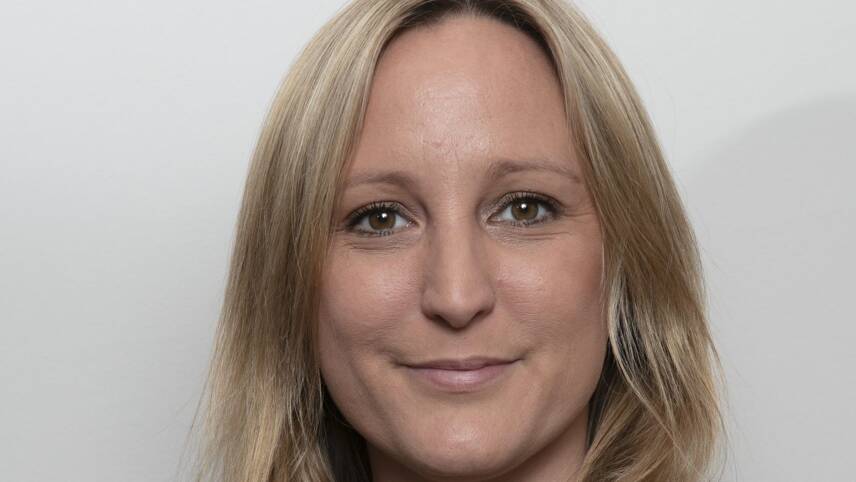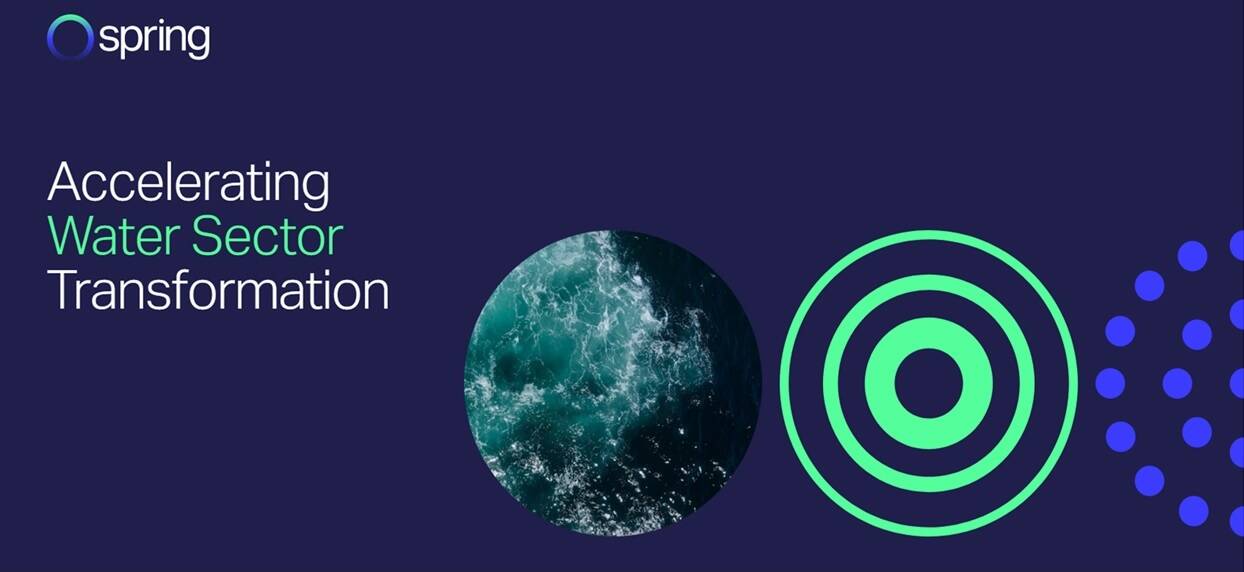You’ve reached your limit!
To continue enjoying Utility Week Innovate, brought to you in association with Utility Week Live or gain unlimited Utility Week site access choose the option that applies to you below:
Register to access Utility Week Innovate
- Get the latest insight on frontline business challenges
- Receive specialist sector newsletters to keep you informed
- Access our Utility Week Innovate content for free
- Join us in bringing collaborative innovation to life at Utility Week Live

Ahead of the launch of Spring’s first innovation challenge, consultant executive lead, Carly Perry, discusses striking a balance between strategy and serendipity in collaboration and lessons in continuous learning from the tech sector.
What is the biggest challenge you’ve faced during your time in utilities?
 Bringing Spring to life is the biggest challenge I’ve had in my career, but it’s by far the most worthwhile challenge I’ve taken on!
Bringing Spring to life is the biggest challenge I’ve had in my career, but it’s by far the most worthwhile challenge I’ve taken on!
The passion for Spring, from across the sector, has been very motivating. And we’ve had incredible support from stakeholders, regulators, innovators and utilities which is fantastic.
This comes with its own challenge too. The strength and depth of interest reminds us we’re delivering something people – myself included – are really passionate about and have high expectations for.
What is your golden rule for overcoming challenges at work generally?
Challenges are great because they give you the chance to accelerate your own learning, but you have to be okay with taking a knock and some negativity. The crucial part is using that experience to deal with bigger challenges and solve bigger problems.
Over my career, I’ve learned how important resilience is to get through challenges and how important it is to bounce back, ready to face the next one.
There’s a certain confidence that comes with resilience and you learn to not mind failure as much because the consequences are rarely as catastrophic as you fear they could be.
Which piece of technology, or app, could you not function without?
I’m on a self-imposed Deliveroo ban at the moment, so I’ll have to find out how well I can function without it.
Zipcar has been a game-changer for me over the last few years. I don’t own a car, but having flexible, ready access to one has been super helpful.
What do you think is the key to creating the conditions for innovation within the utilities sector?
 Is it too cliché to say Spring?
Is it too cliché to say Spring?
Back to my point about learning from challenges, the sector needs to get better at creating the right conditions to allow for – and maybe even encourage – failure. Innovators need to be able to fail fast, learn, adapt and get to the solution faster.
Given the work we do, we have to be incredibly mindful of risk, which I think is why it’s taken us this long to get to where we are now. But I know there’s a huge appetite for this change – from regulators down and Spring is part of facilitating this.
Did you learn anything new about collaborating or innovating as a team or business during the pandemic?
That you can form great relationships virtually. Not just working ones, but warm, personal genuine friendships.
 Before working on Spring, I was leading a Sia Partners team on Stream – the water sector’s open data strategy – for 18 months with colleagues from across consultancies, water companies and regulators. And we really got to know each other – from all the big life events still happening, to pets’ names and favourite hats – random but important information.
Before working on Spring, I was leading a Sia Partners team on Stream – the water sector’s open data strategy – for 18 months with colleagues from across consultancies, water companies and regulators. And we really got to know each other – from all the big life events still happening, to pets’ names and favourite hats – random but important information.
After working together for so long, but never meeting, a few of us got together at a conference and went straight in for hugs. We all felt we’d been through something together and that help forge some really strong bonds.
Which other industry do you feel that utilities can learn most from when creating the conditions for innovation?
It’s another cliché, but the tech sector. They have to operate in a way where they build, test, iterate and learn continuously in a cycle rather than a more traditional task and finish approach.
 If we can get this thinking into utilities, we’ll be able to test and iterate – and fail – more, giving us the confidence to commit to big, transformational change.
If we can get this thinking into utilities, we’ll be able to test and iterate – and fail – more, giving us the confidence to commit to big, transformational change.
What excites you most about the next 10 years in the utilities sector – any trends, tech or specific innovations?
Even if I hadn’t been so closely involved in it, I’d still think Spring was an incredibly exciting shift in the water sector bringing in all the new ways of working we really need to embrace.
The sector has really bold ambitions which, over the next decade, could help solve some of the biggest environmental and social challenges we’ve got.
What is the change you’d most like to see within the utilities industry?
An enhanced, more deliberate version of collaboration.
Collaboration at the moment can feel a bit serendipitous – right place, right time, right people – rather than long-term, strategic collaboration.
There’s a huge opportunity at a national level for this, which will really nudge the dial on performance.
How do you feel utilities companies can collaborate more – or more effectively?
Spring has been set up to do exactly that. To facilitate national, strategic collaboration – providing both the infrastructure and a digital space for this to happen.
Spring is also a demonstration of another shift that needs to continue. The sector, including its regulators, is understanding that competition doesn’t, and can’t, preclude collaboration. It’s right companies are incentivised to improve the services they deliver, but it’s more important services are improved for all customers – and collaboration is the only way to achieve that.

See this content brought to life at Utility Week Live, 17-18 May 2022 NEC Birmingham
Delivering smart water networks is one of the frontline challenges at the heart of Utility Week Live 2022’s live content programme.
View the challenges and be alerted for tickets to the industry’s most eagerly awaited reunion at utilityweeklive.co.uk.
Please login or Register to leave a comment.